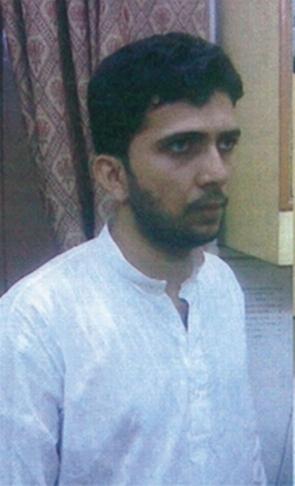'IM has expanded its area of operations into Nepal, which is now the biggest hub for IM operatives.'

A United States state department report has said that Indian Mujahideen, which has ties with Pakistan-based terrorist groups Lashkar e-Tayiba, Jaish-e-Mohammed and Harakat ul-Jihad Islami, is using Nepal as a hub to carry out terrorist activities against Indians.
In its recently released Country Report on Terrorism 2018, the state department said the IM, designated as a foreign terrorist organisation by the US since September 2011, is suspected of obtaining funding and support from sources in Pakistan and the Middle East and that it has expanded its area of operations in Nepal.
'IM maintains ties to other terrorist entities including Pakistan-based Lashkar e-Tayiba, Jaish-e-Mohammed, and Harakat ul-Jihad Islami. The IM's stated goal is to carry out terrorist actions against Indians for their oppression of Muslims. IM has also expanded its area of operations into Nepal, which is now the biggest hub for IM operatives,' the report, which was released in October, said.
'The group is suspected to obtain funding and support from other terrorist organisations, as well as from sources in Pakistan and the Middle East,' it added.
IM has been responsible for dozens of bomb attacks throughout India since 2005, causing the deaths of hundreds of civilians.
The report cautioned Nepal that it can be used as a transit or staging point for international terrorists because of lapses and inadequate security measures.
'Due to Nepal's open border with India and insufficient security protocols at the country's sole international airport in Kathmandu, Nepal has and could continue to be used as a transit or staging point for international terrorists,' the report stated.
It stated that security measures at Nepal's airport was weak and inadequate.
'Kathmandu's Tribhuvan international airport, Nepal's only international airport, does not pre-screen passengers, and landing data are not entered into any database. Physical security checks of passengers are rudimentary. There is no travel document security and the airport lacks ultraviolet lights to examine documents,' the report stated.
The US government report mentioned that Nepal lacks proper screening of passengers with that of the Interpol database.
'Nepal shares an open border with India. The 1,000-mile border has a few checkpoints, but there is a lack of sufficient security controls; for example, only one immigration official may be present at the checkpoint. Thus, most people crossing the border are neither stopped nor checked, and the crossing points can easily be circumvented to avoid scrutiny,' the report said.
'The primary constraint preventing more robust border-control capability is a lack of resources. The security services lack the personnel, technology, databases, basic equipment, and often even electrical power to provide effective border control,' the report added. 'Additional constraints include lack of training and widespread corruption.'











 © 2025
© 2025